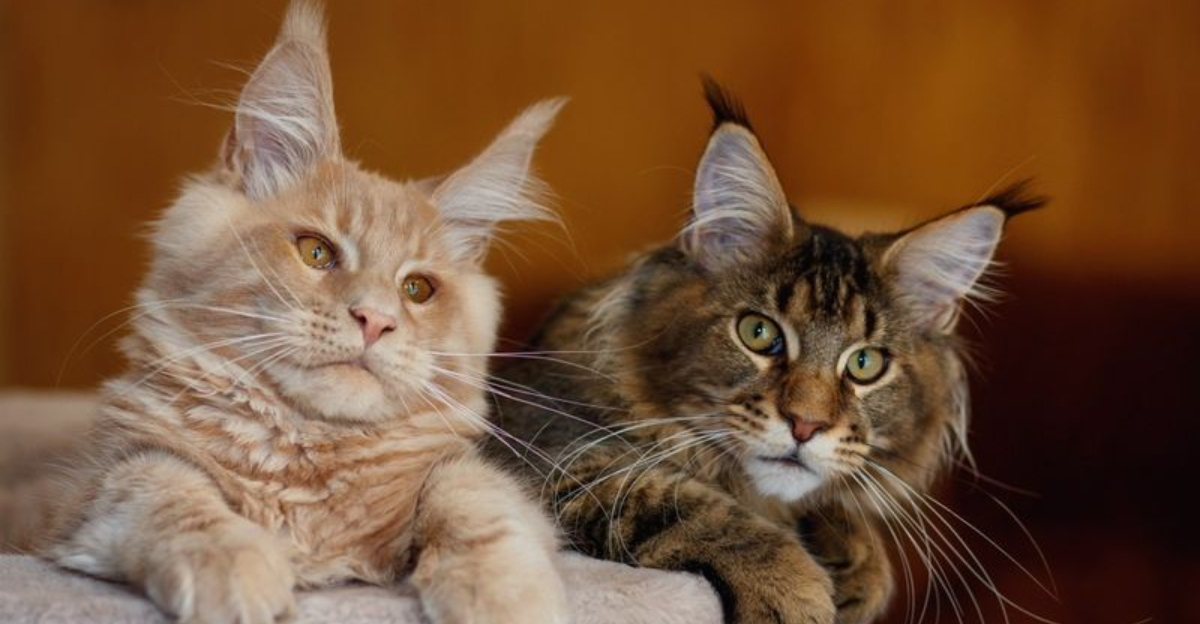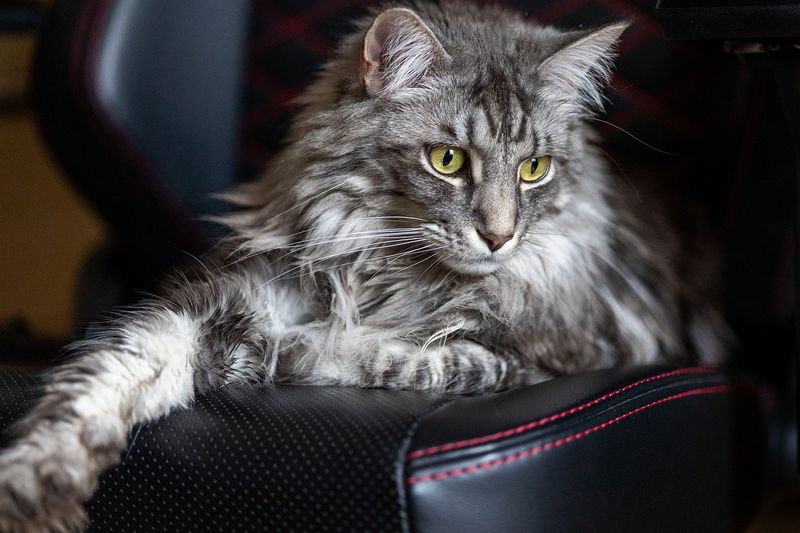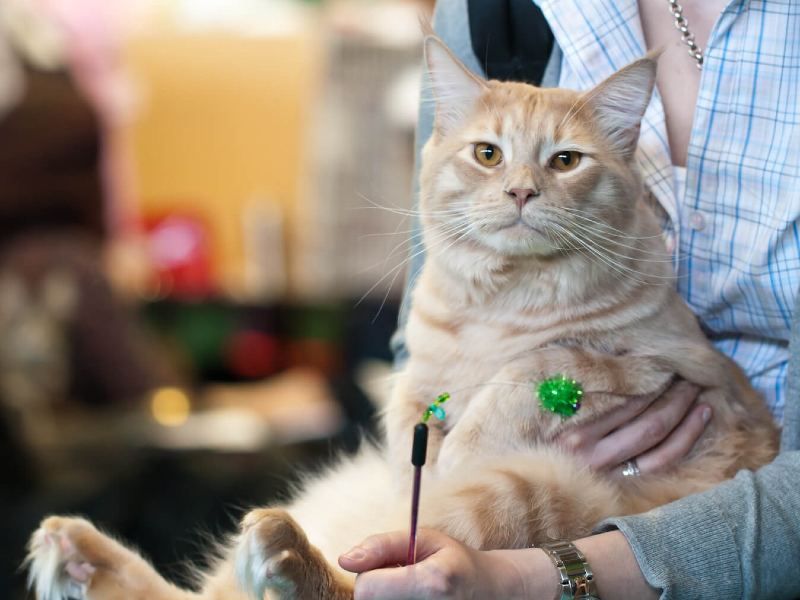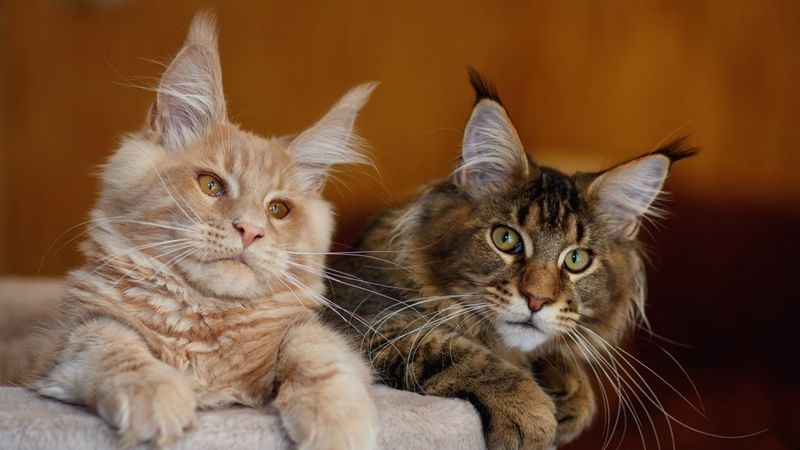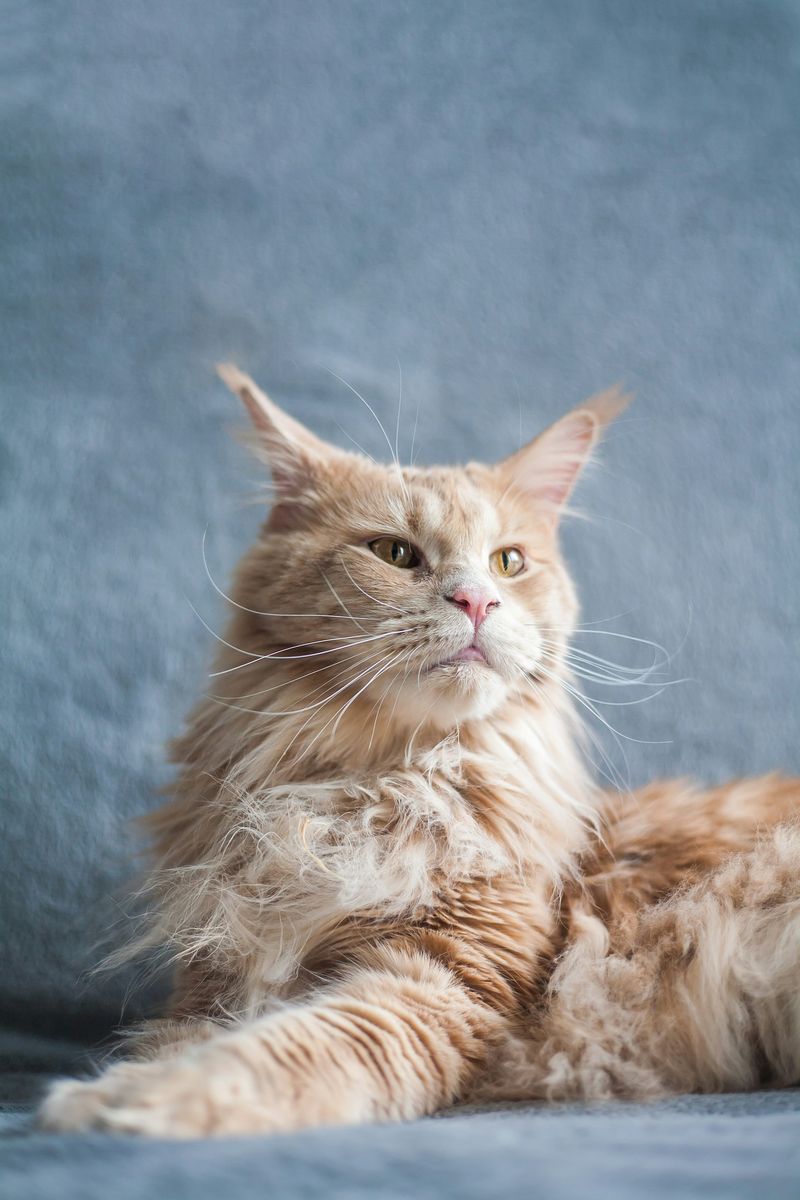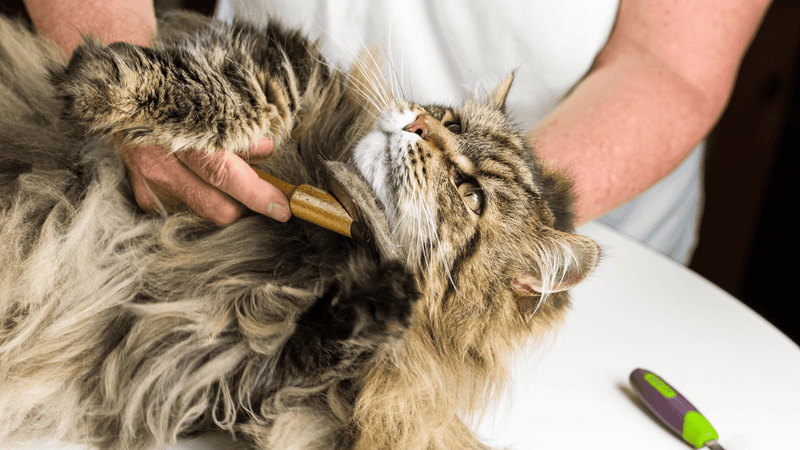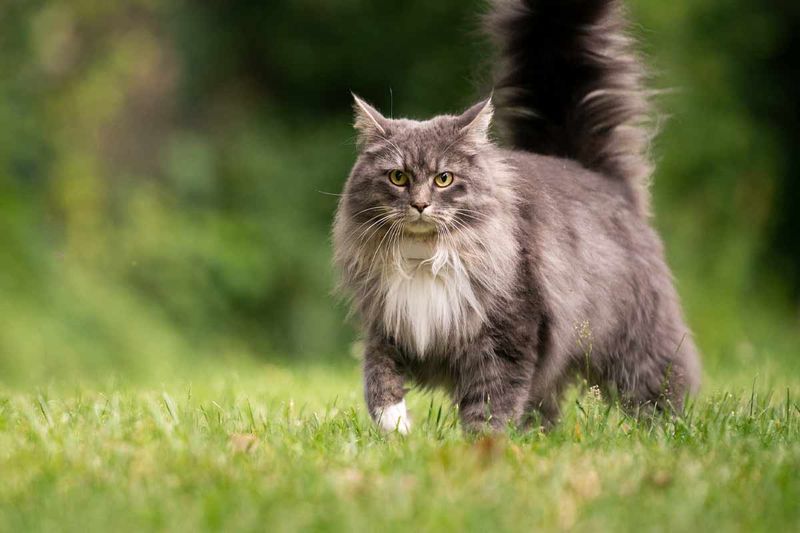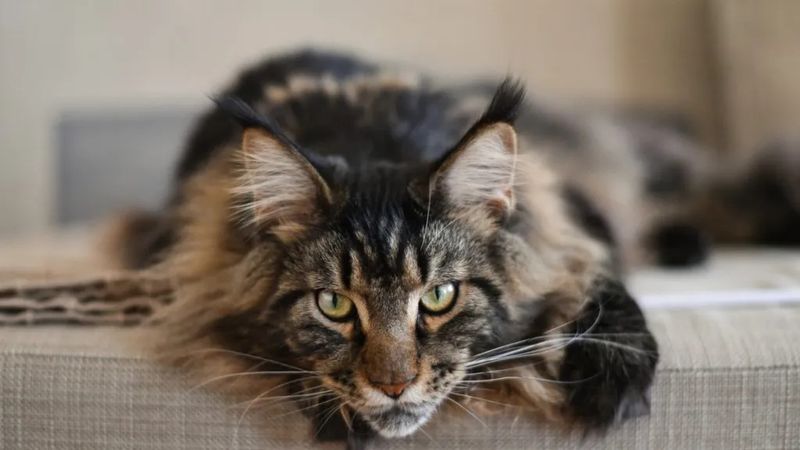📖 Table of Content:
Maine Coons are known for their impressive size and endearing personalities, making them increasingly popular as therapy animals. Their gentle and affectionate nature allows them to form strong bonds with people, providing comfort in a variety of settings. Whether visiting hospitals, nursing homes, or offering support to those facing mental health challenges, these cats excel in roles that require empathy and understanding.
The Maine Coon’s calm demeanor and sociable personality set them apart from other breeds when it comes to providing emotional support. Their large size may initially seem intimidating, but it often works to their advantage, offering a reassuring presence to those in need. The combination of their friendly disposition and physical traits makes them ideal companions for therapeutic environments.
These cats have an innate ability to connect with people, making them exceptional in providing comfort and emotional relief. Their gentle, patient nature allows them to thrive in settings where emotional support is needed most. As therapy animals, Maine Coons offer an unparalleled level of care that other breeds may not always provide.
1. Naturally Calm Temperament
Maine Coons possess an inherent serenity that makes them ideal therapy companions. Unlike more skittish cat breeds, they rarely startle at unexpected noises or movements, maintaining their composure in unfamiliar environments. This steadiness proves invaluable in therapeutic settings where unpredictable situations often arise.
Their unflappable nature helps anxious patients feel secure, creating a safe emotional space. Many therapy program coordinators specifically request Maine Coons because their tranquil presence can lower blood pressure and reduce stress hormones in patients almost immediately upon interaction.
2. Exceptional Social Intelligence
Unlike typical cats who might hide from strangers, Maine Coons actively engage with new people. Their remarkable ability to read human emotions allows them to adjust their behavior accordingly – offering playful distraction to someone grieving or gentle companionship to those in pain.
Healthcare professionals note that these intuitive felines often gravitate toward patients most in need of emotional support. Their social awareness exceeds that of many other breeds. Research suggests this heightened emotional intelligence stems from their historical role as ship cats, where adaptation to various humans and situations was crucial for survival.
3. Gentle Giants with Patients
The substantial size of Maine Coons – often weighing 15-25 pounds – provides a significant therapeutic advantage. Their substantial presence offers a grounding effect for those experiencing anxiety or panic attacks, similar to weighted blankets but with the added benefit of warmth and companionship. Despite their impressive stature, these cats move with remarkable gentleness around vulnerable individuals.
Therapy program directors frequently highlight how carefully Maine Coons interact with frail seniors or individuals with physical disabilities. Their soft, deliberate movements create a sense of safety that smaller, more energetic cats might not provide.
4. Vocal Communication Builds Connection
Maine Coons are famous for their distinctive chirps, trills, and melodious meows rather than typical cat vocalizations. This unique communication style creates interactive experiences that encourage responsive engagement from therapy recipients. Speech therapists have incorporated Maine Coons into sessions where patients practice verbal skills by responding to the cat’s vocalizations.
The cats’ consistent “conversations” provide natural opportunities for communication practice. For nonverbal patients, these vocal interactions offer an alternative connection method. The cats’ expressive sounds often elicit responses from individuals who rarely engage with human caregivers.
5. Stress-Reducing Fur Texture
The luxurious coat of a Maine Coon serves as more than just beautiful fluff. Studies show that repetitive petting of soft textures triggers the release of oxytocin and endorphins – natural stress-relieving chemicals in the human brain. Maine Coons feature multiple fur textures: silky guard hairs, dense undercoat, and tufted areas around ears and paws.
This variety provides different sensory experiences that can be particularly beneficial for individuals with sensory processing disorders. Their fur’s water-resistant quality makes it less prone to matting during therapy sessions, maintaining comfort for both cat and human throughout extended interactions.
6. Impressive Adaptability to Environments
These gentle giants display remarkable flexibility across a range of therapeutic settings. Whether in the lively environment of a children’s hospital or the calm of memory care units, they effortlessly adjust their energy and interaction styles to fit each situation. Their background as working cats on farms and ships has provided them with an adaptability rarely seen in other breeds.
They handle wheelchairs, medical equipment, and unusual sounds with minimal stress. Therapy program coordinators value this adaptability, as it allows Maine Coons to serve multiple facilities without the retraining periods often needed for other therapy animals when switching between different types of care settings.
7. Long Lifespan Enables Consistent Support
With a lifespan of 12-15 years, Maine Coons often remain healthy into their late teens. Their extended life expectancy allows them to provide continuous therapeutic support for individuals with chronic conditions or long-term health needs. Over the years, the emotional connection between these cats and the people they assist grows stronger.
For children with developmental challenges or seniors with dementia, this continuity creates a stable emotional anchor amid other changes. Their robust health means fewer therapy session cancellations due to illness, providing reliable support that other shorter-lived therapy animals cannot match.
